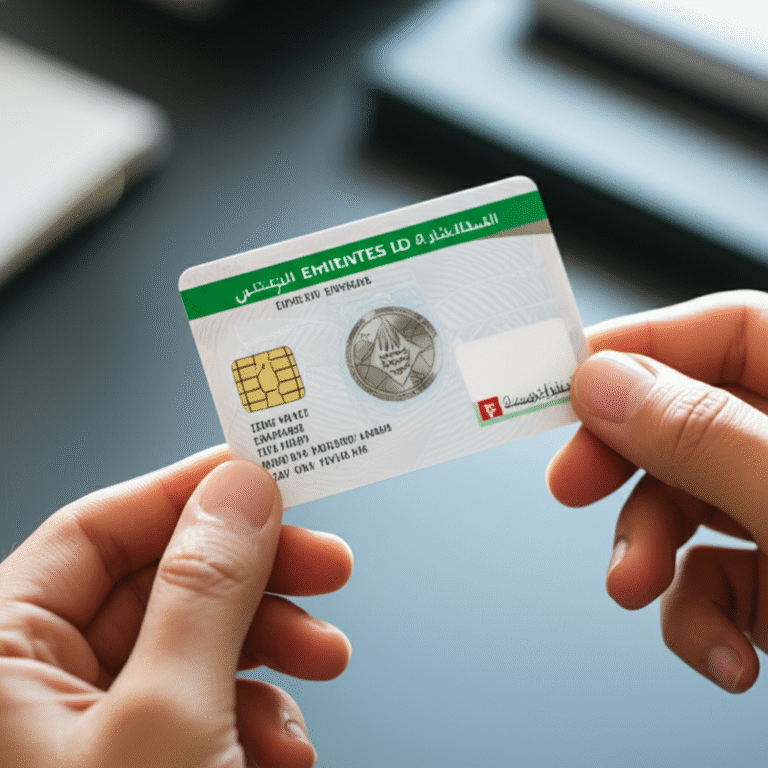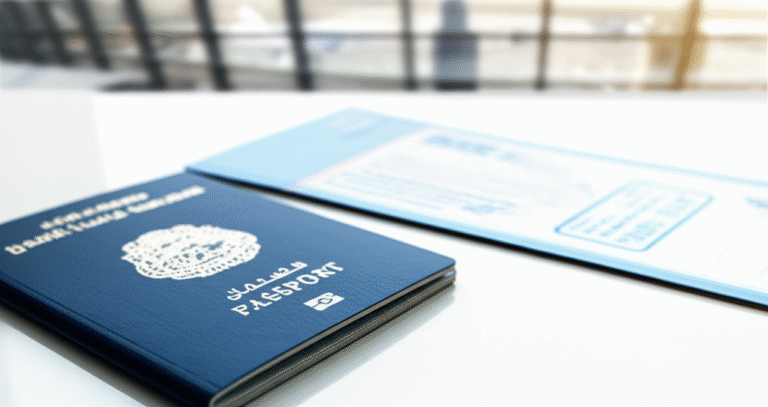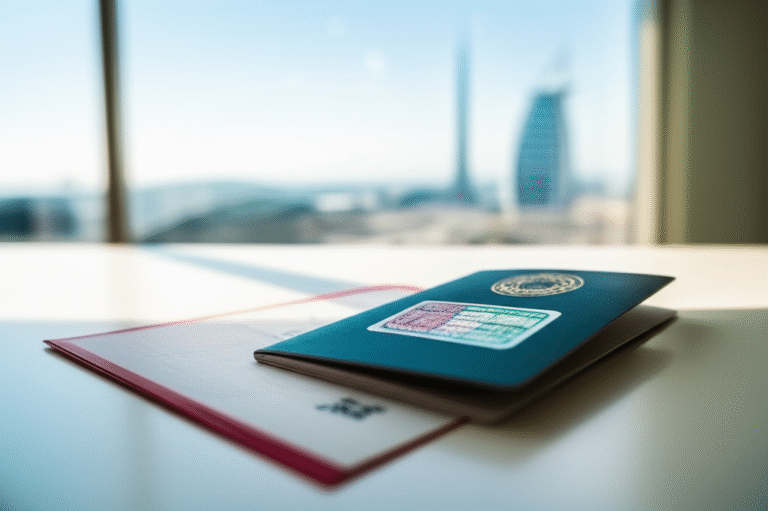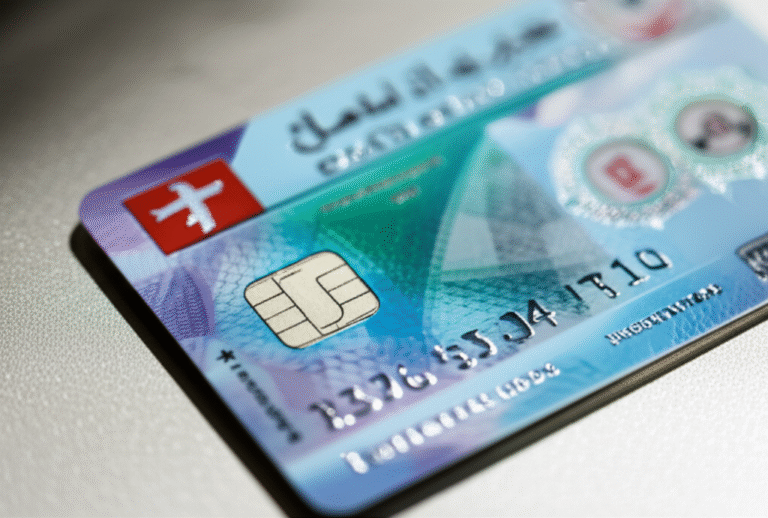How to Hold Family Visa in Dubai: Guide
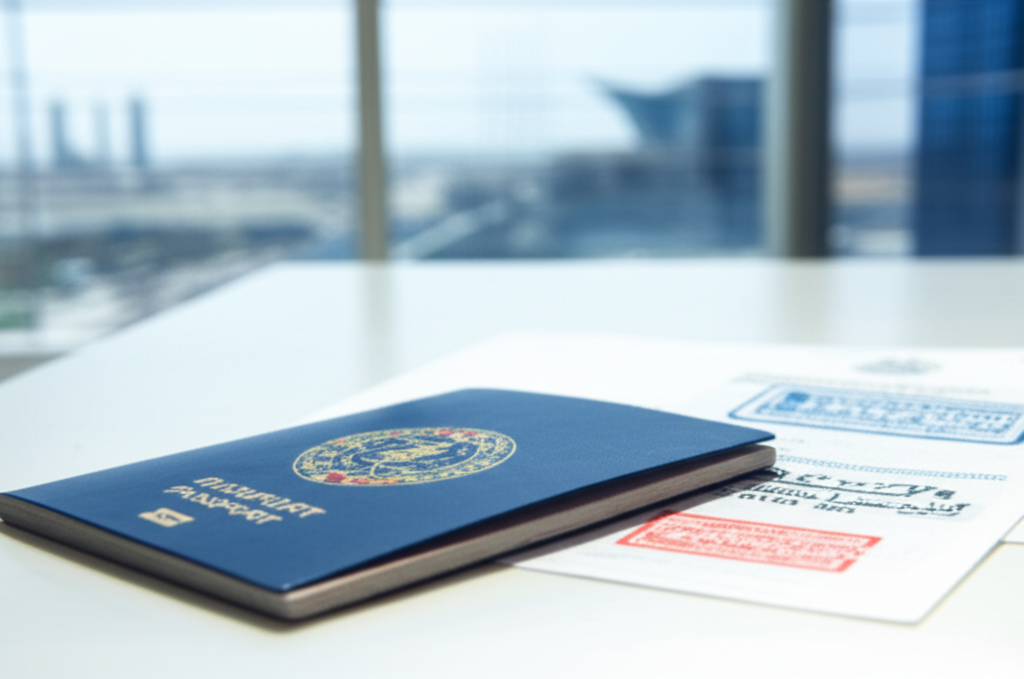
Securing a family visa in Dubai is achievable with a clear understanding of the process. This guide breaks down how to hold a family visa in Dubai, ensuring your loved ones can join you in this vibrant city smoothly and efficiently.
Key Takeaways
- Understand eligibility for sponsoring family.
- Gather all necessary documentation accurately.
- Navigate the application steps with ease.
- Be aware of required medical tests.
- Know the visa validity and renewal process.
- Plan for your family members’ Emirates ID.
Bringing your family to Dubai is a dream for many. It means sharing the wonders of this dynamic city with the people you care about most. However, the process of obtaining a family visa can seem complex. Many expats find themselves wondering about the exact requirements and steps involved. This is where UAE Stayinn steps in, to demystify “how to hold a family visa in Dubai.” We are here to guide you through each stage. You will gain the confidence you need to successfully sponsor your spouse, children, or even parents. Let’s explore the straightforward pathway to reuniting your family in the heart of the UAE.
Understanding Family Visa Eligibility in Dubai
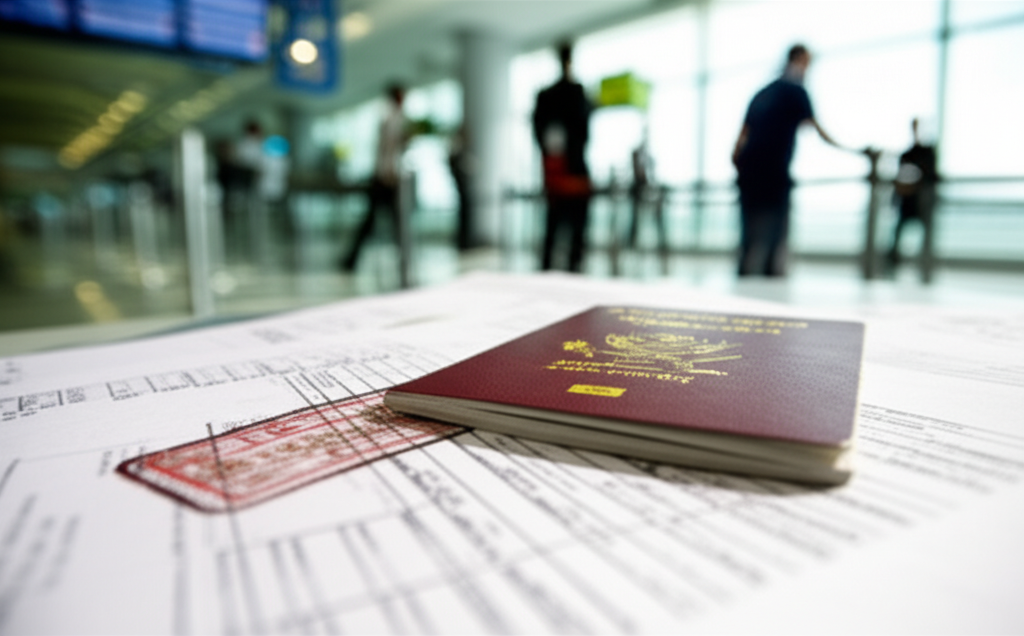
Dubai’s immigration system is designed to encourage residents to build a life here, and that includes family reunification. As a resident of Dubai, you may be eligible to sponsor your family members for residence visas. The primary requirement is that you must have a valid UAE residence visa yourself and a stable income that meets or exceeds the minimum salary requirements set by the Dubai government. This ensures you can financially support your dependents.
Who Can You Sponsor?
Generally, residents can sponsor:
- Spouses
- Children (unmarried sons under 25, unmarried daughters of any age)
- Parents (under specific conditions)
There are specific rules and conditions for sponsoring parents, which usually involve a higher salary threshold and proof that you are the sole support for your parents, or that they have no other means of support in their home country. The authorities aim to ensure that sponsored family members will not become a burden on the state.
Salary Requirements for Sponsorship
The UAE government has set minimum salary requirements for residents sponsoring their families. These figures can change, so it’s always wise to check the latest regulations. As of recent guidelines, a general minimum salary requirement exists, often around AED 4,000 per month. However, if you are sponsoring your parents, the minimum salary requirement is typically higher, often around AED 20,000 per month, plus accommodation. These amounts are set to ensure that sponsors can comfortably provide for their dependents. You will need to provide proof of your salary, typically through an attested salary certificate or pay slips, when submitting your application.
The Role of Accommodation
Your accommodation also plays a role in family visa applications. You may need to provide proof of your housing situation, such as a tenancy contract registered with Ejari. This ensures that you have adequate living space for your family. The type and size of your accommodation can be a factor, demonstrating that you can provide a suitable environment for your dependents.
Step-by-Step Guide: How to Hold a Family Visa in Dubai
Navigating the visa application process is the core of how to hold a family visa in Dubai. It involves several distinct stages, each requiring careful attention to documentation and procedures. Following these steps diligently will ensure a smoother application experience.
Step 1: Obtain Entry Permits (If Not Already in Dubai)
If your family members are outside the UAE, the first step is to apply for an entry permit for them. This is a temporary permit that allows them to enter Dubai. You can apply for this through the General Directorate of Residency and Foreigners Affairs (GDRFA) website or approved typing centers. The entry permit usually has a validity period, and your family must enter the UAE within this time frame. Once they arrive, you will have a grace period to complete the stamping of their residence visas.
Step 2: Medical Fitness Test
Once your family members are in the UAE on their entry permit, they will need to undergo a mandatory medical fitness test. This test screens for communicable diseases. The test is conducted at government-approved healthcare centers. Depending on the results, your family members will be deemed fit, unfit, or unfit with conditions. If they are deemed fit, you can proceed with the next steps of visa stamping.
Step 3: Emirates ID Application
The Emirates ID is a crucial identification document for all residents in the UAE. Applying for an Emirates ID is a mandatory step while processing the residence visa. This involves visiting an Emirates ID service center for biometric data collection (fingerprints and photograph). The application is now largely integrated with the visa application process through the GDRFA portal.
Step 4: Residence Visa Stamping
This is the final stage where your family members’ passports are officially stamped with their residence visas. This is done after the medical test results are cleared and the Emirates ID application is processed. The visa stamping confirms their legal residency status in Dubai. You will need to submit the necessary documents, including the entry permit, medical fitness results, and Emirates ID application receipt, to the relevant authorities.
Required Documents for Family Visa Application
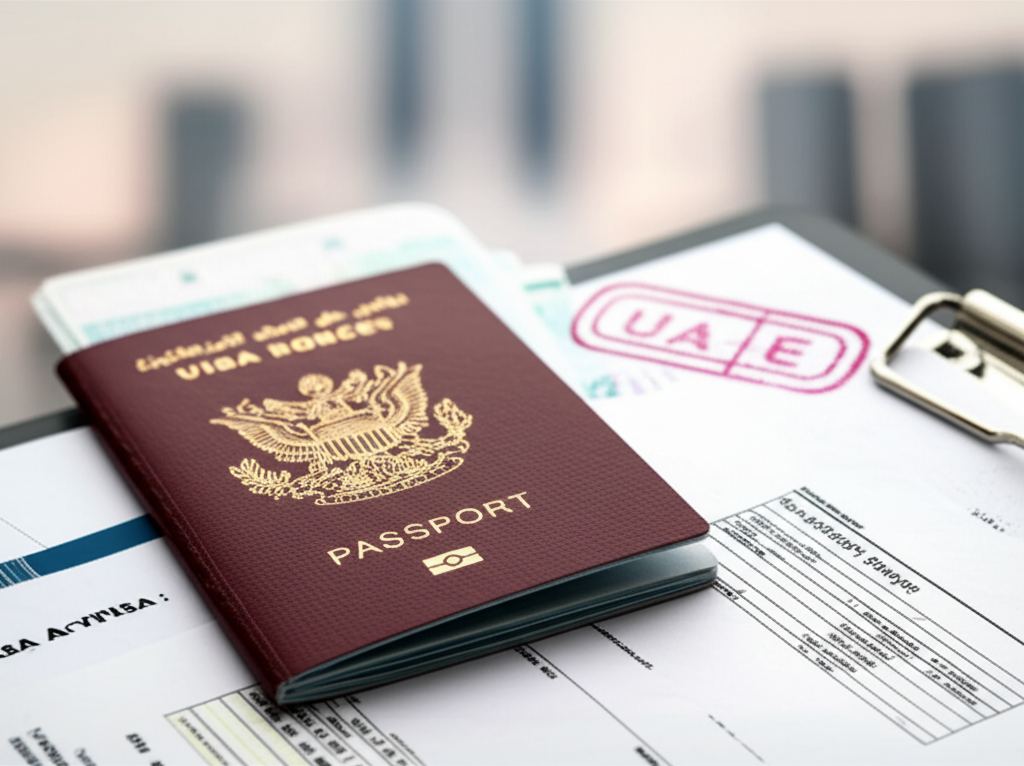
Accuracy and completeness of documents are paramount when you want to know how to hold a family visa in Dubai. Missing or incorrect documents are the most common reason for application delays or rejections. Here’s a comprehensive list of what you will typically need:
For the Sponsor:
- Passport copy (with at least 6 months validity)
- Visa copy
- Emirates ID copy
- Recent passport-sized photographs (white background)
- Salary certificate or employment contract (stamped by relevant authorities)
- Bank statement (usually for the last 3 months)
- Tenancy contract (registered with Ejari)
For the Family Member(s):
- Passport copy (with at least 6 months validity)
- Passport-sized photographs (white background)
- Original entry permit (if they entered from outside the UAE)
- Original Emirates ID application form/receipt
- Medical fitness test result certificate
- Marriage certificate (for spouse, should be attested and legalized by UAE embassy in the home country and Ministry of Foreign Affairs in the UAE)
- Birth certificates (for children, should be attested and legalized similarly to the marriage certificate)
Ensure all submitted documents are clear, legible, and meet specific formatting requirements. For example, photographs usually require a white background and specific dimensions.
Visa Types and Validity Periods
Understanding the different types of family visas and their validity is key to planning your family’s stay. Dubai offers various options to suit different needs.
Residence Visa for Dependents
This is the most common type of family visa. It is tied to the sponsor’s residence visa. If the sponsor’s visa is valid for three years, their dependent spouse and children’s visas will also typically be valid for three years, subject to renewal.
Nanny and Domestic Helper Visas
For those who require additional help at home, specific visas are available for nannies and domestic helpers. These visas have their own set of requirements and conditions, including specific salary thresholds for the sponsor and the need for a formal contract. These visas are also renewable.
Parent Visas
Sponsoring parents is a longer-term commitment and comes with stricter rules. These visas can be for a period of one year, renewable annually, provided the sponsor continues to meet the elevated salary and support requirements. In some cases, a security deposit may also be required.
Visa Validity and Renewal
Family residence visas are generally issued for one or three years, depending on the sponsor’s visa status and employment. It’s crucial to keep track of expiry dates. Renewal applications should ideally be submitted before the current visa expires to avoid overstay fines. The renewal process is similar to the initial application, requiring updated documents and potentially another medical fitness test.
Table: Dubai Family Visa Fees (Estimated)
The costs associated with obtaining a family visa can vary based on the type of visa, the nationality of the applicant, and any additional services required. It’s always best to get the most up-to-date fee structure from official sources like the GDRFA. Below is an estimated breakdown of common fees.
| Service | Estimated Fee (AED) | Notes |
|---|---|---|
| Entry Permit (30 to 60 days) | 300 – 500 | Cost varies by duration. |
| Residence Visa Stamping (1-3 years) | 1,500 – 3,000 | Depends on visa duration and applicant category. |
| Medical Fitness Test | 300 – 500 | Standard fee for adults. |
| Emirates ID Application | 200 – 400 | For 1-3 year residency. |
| Visa Cancellation (if applicable) | 200 – 300 | Fee for canceling an existing visa. |
These are indicative figures. Additional charges may apply for express services, typing centers, or if any special approvals are needed. Always factor in a buffer for unforeseen expenses.
Navigating Dubai’s Smart Services: The GDRFA Portal
Dubai is a city that embraces innovation and technology. The General Directorate of Residency and Foreigners Affairs (GDRFA) plays a pivotal role in this, offering increasingly sophisticated smart services that streamline processes like family visa applications. Understanding how to use these digital platforms is essential for a modern Dubai resident.
The GDRFA Website and App
The official GDRFA website and its mobile application are your primary gateways for many immigration services. You can initiate applications, track their progress, and even make payments online. This digital transformation simplifies many of the procedural aspects, moving away from the need for constant physical visits to government offices. It reflects Dubai’s commitment to efficiency and citizen convenience.
For example, you can often:
- Apply for an entry permit for your family members.
- Track the status of your application.
- Book appointments for medical tests or Emirates ID services.
- Access relevant forms and guides.
This digital-first approach not only saves time but also enhances transparency in the application process. It aligns with Dubai’s vision of becoming a smart city, where government services are accessible and user-friendly.
Pro Tips for a Smooth Family Visa Application
Pro Tip: Always keep multiple passport-sized photos that meet UAE visa requirements. This saves time during the Emirates ID application. Having extras handy ensures you’re always prepared for official documentation needs.
Special Considerations and Common Challenges
While the process is designed to be straightforward, some situations might require special attention. Being aware of these common challenges can help you prepare and avoid potential hurdles.
Sponsoring Parents: A Deeper Dive
Sponsoring parents in Dubai is a more involved process. The higher salary requirement (often AED 20,000+) and the need to prove you are the sole provider are significant factors. Additionally, you may need to obtain medical insurance for your parents. The government wants assurance that elderly parents will be well-cared for and not pose a financial strain. You will also need to ensure that the sponsor has no other siblings residing in the UAE who could also sponsor the parents, unless there’s a clear division of responsibility.
Visa for Newborns
When a baby is born in Dubai to expat parents with valid residence visas, the process for obtaining a visa for the newborn must be initiated promptly. This typically involves obtaining a birth certificate, attested by the UAE Ministry of Health and Ministry of Foreign Affairs, and then applying for a residence visa for the baby. The passport for the newborn will be issued by their home country, and then the residence visa is stamped on it in Dubai. It’s essential to start this process within the stipulated timeframe, usually within 120 days of the birth, to avoid penalties. The application involves the same medical and Emirates ID steps as for other dependents.
Dealing with Denials or Delays
If your family visa application is denied, it’s important to understand the reason. Common causes include incomplete documentation, discrepancies in information, or failure to meet financial or accommodation criteria. In such cases, you may be able to reapply after rectifying the issues. If your application is experiencing unusual delays, it might be beneficial to contact the GDRFA or consult with an authorized immigration services provider.
For official guidance, you can always refer to the General Directorate of Residency and Foreigners Affairs (GDRFA) website, the official portal for all immigration-related matters in Dubai. Their site provides the most accurate and up-to-date information on regulations, fees, and procedures. You can visit them at www.gdrfa.ae.
Frequently Asked Questions About Holding a Family Visa in Dubai
Q1: Can I sponsor my extended family members, like siblings or cousins, in Dubai?
Generally, Dubai immigration laws allow residents to sponsor only their immediate family: spouse, children, and parents. Sponsoring extended family members is typically not permitted unless under very specific humanitarian circumstances and with special approvals.
Q2: What happens if my sponsored child turns 25?
If your son turns 25, he generally needs to find his own employment and obtain a work permit and residence visa through his employer. Unmarried daughters can remain on their father’s or mother’s visa until they marry.
Q3: How long does the entire family visa process take?
The processing time can vary, but typically, once all documents are submitted and medical results are clear, the stamping process can take anywhere from 5 to 15 working days. The initial stage of obtaining an entry permit might take a few days to a week.
Q4: Do I need to be married to sponsor my partner?
Yes, for sponsoring a spouse, a legal marriage certificate is mandatory. This document must be attested by the UAE embassy in your home country and by the UAE Ministry of Foreign Affairs.
Q5: Can I apply for a family visa if I am on a freelance or investor visa?
Yes, individuals on freelance or investor visas can also sponsor their families, provided they meet the minimum salary requirements and other conditions specified by the GDRFA. The specific income thresholds and documentation might differ slightly from those for employed individuals.
Q6: What if my family member fails the medical test?
If a family member fails the medical test due to a communicable disease, they might be required to leave the UAE or undergo further treatment. Depending on the condition, they might not be able to obtain a residence visa. Certain conditions may allow for a conditional visa with specific medical follow-ups.
Conclusion: Building Your Family Life in Dubai
Understanding “how to hold a family visa in Dubai” is the first step towards creating lasting memories with your loved ones in this incredible city. We’ve walked through the eligibility criteria, the essential documents, the step-by-step application process, and even touched upon special considerations. Dubai’s commitment to family values is evident in its clear and structured immigration policies, designed to facilitate reunification. By preparing thoroughly, utilizing the smart services available, and adhering to the guidelines, you can confidently navigate the process. UAE Stayinn is proud to support you in making Dubai your family’s home.

